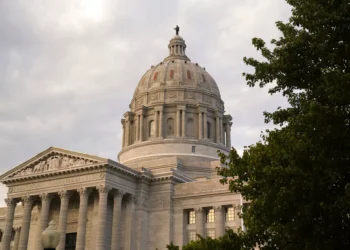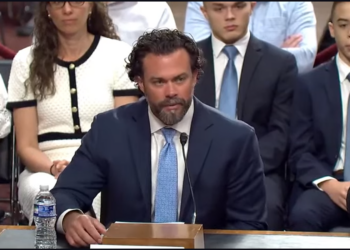The Trump administration has a historic opportunity to both revive the U.S. mining sector and protect religious liberty. Nevertheless, by failing to advance the right legal argument, it risks locking in a judicial precedent that undermines both objectives.
The stakes are high. The Resolution Copper Project in Arizona is poised to become the largest copper mine in the United States and the third largest in the world. Its projected yield — 40 billion pounds of copper over four decades — will be vital to American infrastructure and defense. Yet the project will crater land used by the Apache for centuries as a sacred site. At issue is whether this clash of interests should be resolved by denying the reality of the burden on religious exercise or by acknowledging it and justifying it under the law.
In Apache Stronghold v. United States, the 9th Circuit Court of Appeals narrowly ruled (6-5) that the destruction of the sacred site did not constitute a “substantial burden” on the Apaches’ religious exercise under the Religious Freedom Restoration Act (RFRA). This reasoning is deeply flawed. Rather than confronting the obvious harm imposed on religious worship, the court sidestepped it, setting a precedent that threatens religious practice on all federal lands.
The Resolution mine site, located 60 miles east of Phoenix, sits beneath Oak Flat, a mesa where the Apache have conducted coming-of-age ceremonies and communed with the divine for generations. The underground excavation will eventually create a two-mile-wide, 1,000-foot-deep depression, and, according to tribal members, “close off a portal to the Creator forever” and “completely devastate the Western Apaches’ spiritual lifeblood.”
In 2014, Congress authorized a land swap that allocated more than 2,000 federal acres to facilitate the mine. Rather than settle the dispute, however, that swap sparked a nearly decade-long legal battle that recently ended when the Supreme Court declined to review the 9th Circuit’s decision. The problem is how the court justified allowing the mine to proceed. The 9th Circuit concluded that the federal government’s transfer of land — and the subsequent destruction of the sacred site — would not impose a substantial burden on religious practice. That conclusion is legally and morally indefensible.
What the 9th Circuit should have done, and what the Trump administration must now do, is recognize that a substantial burden exists and argue that the federal government’s interest in securing a stable domestic mineral supply meets RFRA’s strict scrutiny test. The law does not forbid burdens on religion. It forbids unjustified ones.
Justices Neil Gorsuch and Clarence Thomas rightly dissented from the court’s refusal to hear the case, emphasizing the serious threat to religious liberty. But their dissent missed an opportunity to address the government’s compelling national interest in the development of the Resolution mine, or of the mining sector more broadly. That omission reinforces a false binary between religious freedom and economic development.
In truth, both can be upheld if the federal government frames its argument properly. The Trump administration should reject the weak legal rationale advanced by the Biden administration, which denied any substantial burden on religious practice, and instead make the stronger case. Yes, the mine imposes a burden on Apache worship, but it is justified by a compelling national interest. This approach would be consistent with the rationale outlined, for example, in Executive Order 14241, Immediate Measures to Increase American Mineral Production.
Acknowledging the burden is a prerequisite to making the winning argument. The Resolution mine literally destroys a Native American place of worship. But RFRA allows burdens on religion when the government can demonstrate a compelling interest and use the least restrictive means available. The Trump administration should embrace this framework.
Such an approach would not only support this one mine but further create a robust precedent for future mining projects on federal lands. It would also reaffirm a vision of religious liberty rooted in principled balance.
Mining is a uniquely political enterprise. It requires permits and capital, as well as legal and moral defenses strong enough to withstand inevitable litigation. The Resolution mine presents the Trump administration with a singular chance to secure both religious liberty and economic independence. It should seize the moment and win the right way.
Sean Fieler is chief investment officer of Equinox Partners.
















